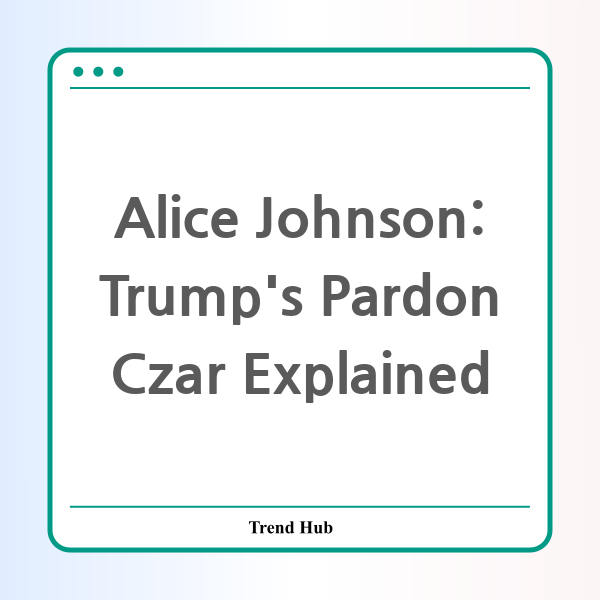* This website participates in the Amazon Affiliate Program and earns from qualifying purchases.

Is Alice Johnson truly a symbol of compassion, or is she part of a political stunt? The recent appointment of Alice Johnson as "pardon czar" by former President Trump has generated significant buzz, raising questions about the motivations behind this move. Johnson, a former prisoner who gained national attention after her life sentence was commuted in 2018, is now tasked with recommending individuals for presidential pardons. But what does this mean for the justice system and those seeking clemency?
Alice Johnson's journey to freedom has been nothing short of remarkable. After serving over 21 years in prison for nonviolent drug-related offenses, she became a symbol for justice reform, particularly after high-profile personalities like Kim Kardashian advocated for her release. Johnson was convicted in 1996 for leading a drug ring that dealt in significant amounts of cocaine. While her release is celebrated, the complexities of her situation highlight deeper issues within the criminal justice system.
Trump's announcement that Johnson will serve as his "pardon czar" during a Black History Month event was a calculated move. He described her as an inspiration, suggesting she would evaluate and recommend individuals who deserve pardons, which ostensibly aligns with his narrative of compassion for the wrongly incarcerated. However, many critics argue that this is just a political maneuver. They point to Trump's own mixed record on drug policy, including his previous calls for severe penalties against drug dealers, which seem at odds with the compassion he claims.
The role of a pardon czar often implies a level of independence and authority; however, in this case, it appears to be a figurehead position. Ultimately, the president retains absolute control over who receives clemency. This brings us to the fundamental question: Is Alice Johnson's new role a genuine effort to pursue justice reform or merely a token gesture to showcase purported benevolence?
Many observers see the appointment as an example of gaslighting within political narratives. Johnson’s story has been leveraged to paint a picture of compassion and understanding that contradicts Trump's existing policies and statements about drug offenders. This contradiction raises a crucial debate about the authenticity of his administration's approach toward drug policy and criminal justice reform.
Moreover, Johnson's significant past poses a dilemma. Having been convicted of serious charges, her new position as a recommendation authority for pardons could lead to unforeseen complications. There is an inherent risk in associating her with the current administration, especially given Trump's controversial pardon history which has included individuals involved in criminal activities that raised public outcry.
As the discussion around criminal justice reform continues to evolve, the spotlight on Johnson illustrates the complexities of how individuals can be used within political narratives. Will her appointment lead to meaningful change, or will it simply serve as another chapter in the ongoing saga of political theatrics? Many advocates for reform hope to see genuine efforts that extend beyond symbolic gestures and lead to substantial policy changes.
In conclusion, while Alice Johnson's story is one of resilience and hope, her role as "pardon czar" reveals much about the intersection of politics and justice. As society grapples with the future of drug policy and criminal justice, the scrutiny surrounding her new position will be a crucial barometer for understanding the true intentions behind such appointments.
* This website participates in the Amazon Affiliate Program and earns from qualifying purchases.